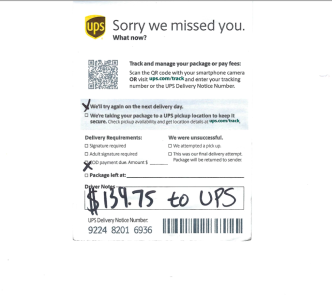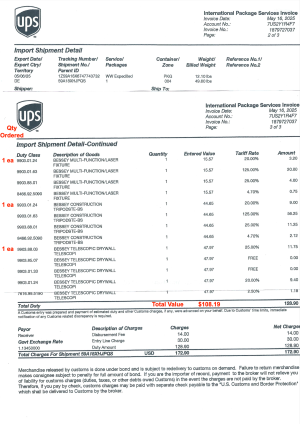I am doubtful that manufacturers will pass along all of the cost of the tariffs.
On Monday I went to the local factory Sketchers Shoe store based on two factors:
1. I was going to need a new pair of shoes fairly soon.
And…
2. I read that nearly 100% of all footwear was made or assembled in China, Viet Nam or Mexico, with a smattering in other Asian countries, all, or most of which were going to be hit with tariffs.
I figured that buying now would would save me money.
When I got there they were holding a sale: Buy 2 pair and the second pair is at half price.
All of which means that if they get hit with a 10% tariff, they could choose to pass along all of that cost, some of that cost, or none of that cost.
Some other items, like automobiles, operate at much tighter margins and will likely pass along most or all of that cost.
But some items that are rarely discounted, like Festool, will have generous profit margins, will consider the market implications of passing along the tariffs.
I suspect that some vendor will advertise, “Buy now, and we will pay the tariff on your purchase.” (Which might sound more generous than it is.)
A $1,000.00 retail purchase will likely have a dealer cost of $500.00, and a tariff of $50.00.
“Originally sold for $999.00, now just $949.00. (Yes, we will pay the tariff so you don’t have to.”)
In the (I believe the President Reagan years) there was an added tariff of 10% on imported tires that had to be shown as a line item on invoices. So when you bought an imported tire from a dealer you knew exactly what they paid for it. It made negotiations for better pricing easier.
That phenomenon will be the wrench in the works.
But in any case, I don’t believe that all the cost of the tariffs will be passed along to the consumers.


